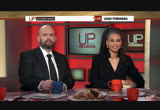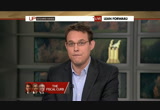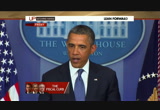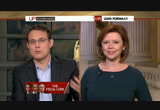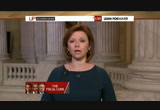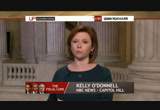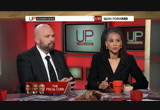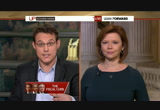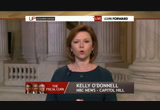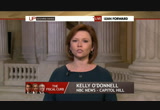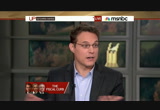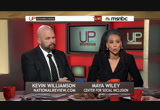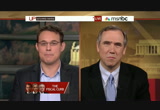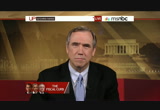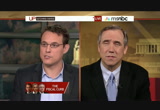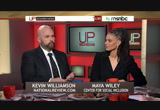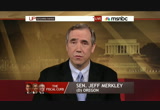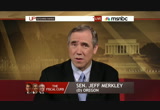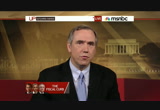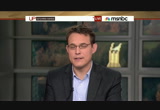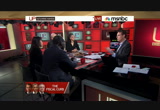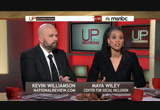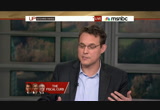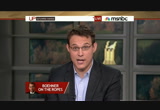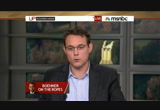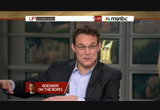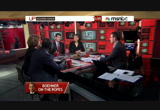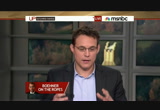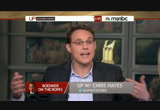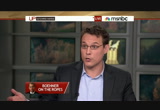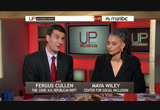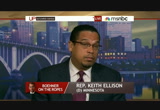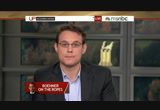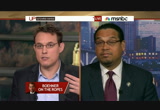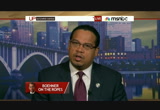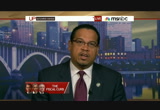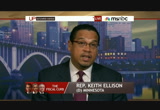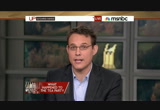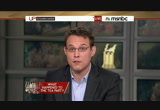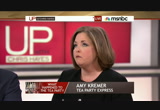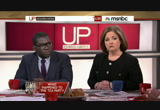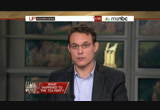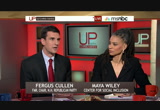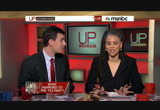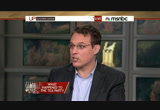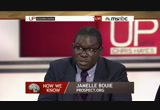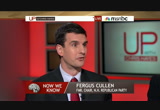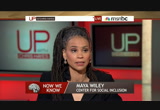tv Up W Chris Hayes MSNBC December 30, 2012 5:00am-7:00am PST
5:00 am
generations? and will andrew's son, henry, carry the business into the fifth? until then, remember, we make your business our business. we've all had those moments. when you lost the thing you can't believe you lost. when what you just bought, just broke. or when you have a little trouble a long way from home... as an american express cardmember you can expect some help. but what you might not expect, is you can get all this with a prepaid card. spends like cash. feels like membership.
5:01 am
good morning from new york. i'm in for chris hayes. a spokesman for george h.w. bush says his condition has improved and he's moved from intensive care back to a regular room at methodist hospital in houston. members of congress are scrambling to beat the january 1st deadline to avert a broad package of spending cuts and the expiration of all the bush tax cuts. the latest in just a moment. right now, i'm joined by jamelle buoy. a staff writer for the american prospect magazine and "washington post" reporter, suzy kim. kevin williamson, dep deputy mag editor and a nonprofit group that advocates for social and economic equality. we're one day away from what most media are calling the fiscal cliff. if political concoction enacted
5:02 am
by congress to frighten itself into passing deficit reduction measures which means unless congress acts in the next 48 hours the bush tax cuts will expire along with federal unemployment insurance and a broad package of the spending cuts including defense spending will take effect. do weeks of fruitless negotiations and john boehner and senate leader are working on a deal this morning to avoid the fiscal cliff, or as chris hayes and i call it, the fiscal curve. the deadline is soft. it's not like every american is going to be handed a bill on january 1st and there's way to manage the damage if the country goes over. the senate is set to convene this afternoon with the house to follow tonight. there's a chance that a compromise will be reached, less than 48 hours before tax rates revert to their clinton dasher are levels and board across the board spending cuts talk effect. when the president took to the podium friday afternoon to urge the law enforcements to get their act together with he didn't exactly project confidence. >> this is deja vu all over
5:03 am
again. america wonders why it is that in this town for some reason, you can't get stuff done in an organized timetable. why everything always has to wait until the last minute. we're now at the last minute. and the american people are not going to have any patience for a politically self-inflicted wound to our economy. >> this may be why the president also said that if senate leaders can't produce a deal he'll demand a straight up or down vote by the senate on his proposal from a week ago to extend the current rates on income below $250,000 along with unemployment insurance benefits. >> if members of the house or the senate want to vote "no" they can. but we should let everybody vote. that's the way this is supposed to work. if you can get a majority in the house and you can get a majority in the senate we should be able to pass a bill. >> what the president is doing here is daring the republicans to let taxes go up for all americans.
5:04 am
this leaves mitch mcconnell in a weird, grey area. he recognizes the gamesmanship and a need to get a deal done and he has a eye on the republican party's conservative base which is relentlessly opposed to any tax increase and senator mccobb nell is up for re-election in 2014 where tea party rebellion toppled his own protége and instead, send rand paul to the senate. i'll bring in nbc news capitol hill correspondent, kelly o'donnell. waiting for action here today. >> reporter: it seems pretty quiet at the moment, steve. it's one of those things where you feel like something big is going to happen but as you walk through the corridors here, it seems pretty quiet at the moment. >> well, we have all sorts of conflicting reports out there about what the broad framework would be if there's going to be a deal. i guess the big stumble bling block is number one, what is the
5:05 am
fresh hold be for the tax income? $250,000 which obama originally proposed? $400,000 which he supposedly offered in a revised offer a week ago? and then, of course, the status of the sequester. we have $1.2 trillion in cuts over ten years, half from defense and half from nondefense discretionary spending. is there any indication if there's a deal today what they're talking about in terms of those two issues? >> we're reading tea leaves but we can say that on saturday there were the most senior-level staffers who were doing the nitty-gritty negotiations. we're told paper was exchanged back and forth meaning proposals being outlined and going back and forth with details. we're told the sticking points we'lly do center around that income threshold. where would you set a new tax level awhich everyone would pay higher taxes? how much income could you protect for the majority of americans? 250 is the number the president started with. as you point out he had withdrawn his earlier offer of
5:06 am
$400,000 as the income threshold and ali al haidaris say that's because that was a part of a much bigger plan and now the expectations are something smaller. and in the art of negotiation, looking for leverage, the president withdrew that. it's expected, certainly by senate republicans, that that number will come back up. i've had a number of members of the republican party in the senate who are not directly involved in this saying if it could get to 500,000 there would be a lot of votes for that. going beyond those taxes there's also the issue of the inheritance tax which would go up sharply come january 1st. that's an issue that republicans are concerned about. but also, some democrats who are in especially states where you have lots of family farms and ranches, where people might be asset-rich but cash-poor. they're concerned about trying to make that not be such an enormous jump when it comes up. and then even another very kitchen-table sunday-morning kind of issue, the issue of milk prices, unrelated to the fiscal cliff, there's this lagging problem with a farm bill that
5:07 am
went nowhere. because of the way farm policy works, come january milk prices could essentially go as high as $8 a gallon. they're feverishly working to come up with a plan to avert at least part of that and trying to tack it on to this fiscal cliff talk. there's a lot going on beyond sort of the whole issue of taxes. it runs deeper than that and that's what makes it so difficult and so complicated. every new issue opens the door to new sorts of conflicts and compromises. and it takes some time. >> and can you take us through quickly, what the roadmap would look like if mcconnell reid say we've got the basic deal. how would that play out. >> reporter: the expectation now is that it would become a senate move first, in part because that's something speaker boehner insists on. the president gave the green light that the senate should act first. if they come up with a plan we'd see a vote in the senate and then it would go to the house
5:08 am
and then the ball is back in the speaker's court. can he get enough votes? the big deal with the plan b failing is that democrats agreed not to go along. now the pressure would be different and you would expect many more democrats would participate and vote in support of it. even if you lose a significant number of republicans, you might be able to get enough. all of that contention is what really in the deal? so there are some steps here. there are some potential pitfalls where it could come apart. there isn't a real sense of optimism right now. but there's a way that it could get done and certainly a way that it could be derailed. >> kelly, if i could impose on you to stick and, i'll bring in our panel and keep you in the mix a little bit. kevin, maybe we could pick it up with you. kelly mentioned the expectation on the senate side that if there's a deal here that income threshold would be set, maybe closer to four or $500,000. the bush era rates would revert for everybody below the number. i look at this and say i'm not
5:09 am
sure about the senate but the house, plan b was a million dollars. that was the threshold and boehner didn't have enough support in his own conference to bring the bill to the floor. is there any reason to think the republicans would go with a lower threshold? >> no. i wouldn't think so. it's almost an entirely symbolic issue. you're not going to raise much revenue by targeting these small groups of people. you can take the top two but you still won't close the deficit doing it for the 250 and up will just reduce the deficit by 10 or 12%. so it's a question at this point of what sort of hollow, empty meaningless symbolic gesture daus washington want to make and how many group of people do they want on the altar to make that gesture. >> what's so interesting here is that we're talking about the republicans fighting to protect 1.2% of the american public from a tax increase. 98.2% of taxpayers are below the
5:10 am
$250,000 threshold so it's kind of amazing in congress, particularly when we're talking about the house, that he's made a pledge around tacks that its willing to allow 98.2% of americans to pay more by going over -- around this curve, it's more of a curve than a cliff. but i think the issue of the deficit is important. i don't think it's a symbolic gesture. one of the things that we've seen is $200 million we've started carving off the deficit. and the question is the time frame of deficit reduction, right? it's how fast, over what time trajectory do we see health? we've been making improvements over the past three years. >> that 1.2% number i want to point out is your complaint is that the republicans are looking after the interest of a very small minority group? that's not normally the criticism in the gop. >> that's what i think is the irony here. i think it's actually idealogically inconsistent
5:11 am
techb. we stand for a proposition that we don't want to see tax increases and we're unwilling to compromise and the democrats are saying that 98.2% of people will continue to get tax cuts that the republicans -- >> the other issue here, though, is that we can talk about is this impasse. republicans are saying "no" at this or that threshold but the bottom line is if we bet to january 1st and there's no deal the game changes completely and at this point anything republicans vote for, suzy, would be a tax cut? >> this is the irony of what's happening. what happens after january 1st, as you said, there isn't a hard deadline. not all of the spending cuts and tax increases will happen on january 1st but the law changes. so technically speaking, republicans would be voting for a tax cut rather than a tax increase. and this is something that democrats have been holding on to saying that, well, you know, after january 1st, it's going to be politically easier for
5:12 am
republicans to not be on the books saying they voted for a tax hike. this is why you saw such a big opposition to boehner's plan b. the plan that he brought -- the bill he brought forward that would raise taxes on income above $1 million because they said, no." why would we vote for this when we think the threshold can even go more down. why would we want to do that? this is one argument for why things do change politically even if they don't change substantively after january 1st. >> on that point and i'll bring quelly back in. the sequence -- the sequence really seems to matter to republicans, particularly in the house, whether it happens this week and it's a tax hike the next week and it's a tax cut. one of the questions is if there is a deal and if mcconnell and reid on the senate side strike a deal, how much does mcconnell have to take into consideration? what could boehner even bring to the floor?
5:13 am
is mcconnell's bottom line basically, i have to have a guarantee that it's going to pass the house before i go public and say i have a deal with reid? >> that's where it comes in in talking to members. we're hearing that they'll present a deal if one is reached to their membership. take their temperature and get a sense of where things are going. from observing capitol hill, mitch mcconnell usually can see a few steps ahead of himself politically and that's important to know what's achievable. but as intense as the public pressure is right now to see something happen, as much as there is complaint and criticism leveled against congress, whatever they do, whatever vote they cast, they live with for a long time politically. if you look back to something like t.a.r.p. where the country was in real financial crisis, you got people to cast a vote and then politically, many of them suffered because of the vote. they're awooir oare of that. as much as there's a reasonable call to sit down and work something out each side has to decide what they can do and how
5:14 am
it might be used against them in the months and years to come should they seek re-election. that's part of the personal interest you have to calculate in looking at how they're trying to make a deal because many democrats also expect the threshold could go above $250,000 and thatd be okay with that. not all, but some. so there's a sense that once a deal is struck, everybody's got to live with it. pushing it as close to the deadline and trying to ring out as much for each side as they possibly can, is in part, because the longer a deal sits out there, the more it's criticized. if they can get as close to the deadline and maybe go over it, it changes the atmosphere politically about what can be done and about how the public will view it. if they reach a compromise and then people are sort of clubbed politically over the months and years to come, that's something that makes them very hesitant, especially if it's something that's as core in their various beliefs. whether it's preserving as few tax increases as possible or if it's protecting entitlements. whatever it might be.
5:15 am
they each carry a bag of their own votes around and sometimes those can mean the krit kwal difference of whether they're able to stay in office or not so you have to look the it through the individual member perspective to get a sense of why it takes so long. >> the re-election incentive and particularly in this era the threat of a republican primary challenge. we'll talk about how that affects discussions like this in washington. nbc news capitol hill correspondent kelly o'donnell thanks for joining us. jeff merkley is right after this. ah, i'm good. ♪ [ male announcer ] every time you say no to a cigarette, you celebrate a little win. nicoderm cq, the patch with time release smart control technology that acts fast and helps control cravings all day long. ♪ quit one day at a time with nicoderm cq.
5:18 am
5:19 am
if there's no deal and inaction, there's a lot of leverage it would seem that president obama would have. all the bush era tax rates go away. polls suggest republicans will be blamed more than democrats with if we go over the curb so to speak. is there a real incentive here for democrats to say, let's just not make a deal today? >> i think the only incentives for democrats not to make a deal, to wait for us to go over the curb, to wait for us to repeal the bush tax cuts or moving into a lower level for republicans, so there's base saving for them. for democrats there's more leverage to ask for what i think are the important elements. unemployment insurance, stimulus spending and hopefully, an extension of the payroll tax. i would prefer us to postpone the status quo for two more years because what's important right now is to get the economy back in gear and getting the economy back in gear. >> you would extend? >> the fiscal cliff would happen like in 2014. >> so bush tax cuts for the top
5:20 am
2%? >> keep those. the whole shabang. what we need is more money to go to the economy to keep things afloat. and this is not the time to figure out how we're going to reduce that. it doesn't -- it's not quite that important right now. >> picking up on that point, you're very closely following that stuff in washington, it looks like, my interpretation of this and tell me if i'm wrong, the payroll tax is basically gone already? >> i totally agree. it's not even being mentioned and the reason is, obama's last offer -- we actually had obama and boehner still negotiating in good faith, passing deals back and forth and this was included. he dropped his demand for having an extension of the payroll tax holiday in which the payroll tax was dropped from 6.2 to 2.4%. he dropped it. the stimulus offer shrank from 425 billion to 175 billion. so it's something he's already given up. you had tim geithner saying earlier in the year that, you know, this a payroll tax holiday
5:21 am
is just that. it's a holiday. they're not supposed to last forever. you have unemployment is better. things are, comparatively speaking, better then they were when they first passed this so it's time to let this go. you'll have democrats worried that the payroll tax fund social security. they're worried about compromising the integrity of social security. and it's just something that folks aren't talking about. this is something, as much as i agree that there are lots of parts of the so-called fiscal cliff that are a curb, this is something that will steak effect immediately in january and it is a tax hike on the middle class. if you earn $50,000, you expect your taxes to go up about $1,000. so this is just a reality that, in fact, both democrats and republicans are likely to be hiking taxes on a substantial portion of the american population. >> and when we talk about the effect of this on sort of the working poor and the middle class or we can talk about the payroll tax which hits them
5:22 am
directly. the other issue, quickly, is these tax credits. the earned-income tax credit which was expanded. the child tax credit was expanded in 2009 or the stimulus. this is sort of up in the air about whether this expansion will continue for the next few years. that has a real impact on these families, too. >> it has a significant impact. we're talking about families working long hours. so we have to start with the fact that we're talking about people who are working. i think there's a myth that people who are low-income and in need of either various forms of subsidy programs or tax credits or somehow not pulling their weight. the 47% type of comment. the reality is, these are people who are working very hard. wages have stagnated in this country and in order to pay for childcare and in order to make sure you can pay for groceries at the end of the month, these tax credits are actually really important to a whole lot of americans. actually it's something in this economy where we see not only are people struggling you see people struggling and not being able to pay food bills at the end of the month.
5:23 am
>> there are some interesting issues here. kevin i want to ask you about this next. we're up a little bit against the time but there's interesting issues for republicans when we talk about the payroll tax cut. this affects tens of millions of americans. the earned-income tax credit which was a republican idea originally and had a lot of republican support through the years. i want to ask you in the next segment what republicans make of these things going away potentially? and that and democratic senator jeff merkley as promised, he'll be on the show after this. [ male announcer ] it's that time of year again. time for citi price rewind. because your daughter really wants that pink castle thing. and you really don't want to pay more than you have to. only citi price rewind automatically searches for the lowest price. and if it finds one, you get refunded the difference. just use your citi card and register your purchase online. have a super sparkly day! ok. [ male announcer ] now all you need is a magic carriage. citi price rewind. start saving at citi.com/pricerewind.
5:26 am
c'mon, michael! get in the game! [ male announcer ] don't have the hops for hoops with your buddies? lost your appetite for romance? and your mood is on its way down. you might not just be getting older. you might have a treatable condition called low testosterone or low t. millions of men, forty-five or older, may have low t. so talk to your doctor about low t. hey, michael! [ male announcer ] and step out of the shadows. hi! how are you? [ male announcer ] learn more at isitlowt.com. [ laughs ] hey! right now, i'll bring in democratic senator from oregon, senator jeff merkley. some of the news we're getting overnight is that mitch mk connell said he's been exchanging papers with harry reid and potentially working toward a deal. we're hearing that one of the points of contention here is -- the bush tax cuts are going to have to go away for some people
5:27 am
but where will the income flesh mold be set? 250,000, obama's first offer, 400,000 his second offer or 500,000 kelly o'donnell said the senators will go along with. plan be was a million. in terms of your colleagues and the democratic side, what's an acceptable level for you to where the income threshold should be? >> there's a whole spectrum of opinion and most of us feel the right thing for america is for the line to be at 250,000. it leaves only 2% of americans who would be paying more and it does a maximum amount to start impacting if deficit. on the other hand, this is a negotiation. we realize there's going to be some flexibility. the president has already carved out that territory. so the line isn't going to be a rigid line, if you will. >> and the other issue, i guess, is the sequester. if nothing happens on january 1st, we're talking about $1.2 trillion in cuts over the year half defense and nondefense
5:28 am
discretionary. would you be okay with the sequester not being part of the deal with that sequester taking place? >> it's been very clear that there's too many pieces on the table for them all to get resolved in the next couple of days so i would -- i would expect that there might be a bump in this sequester but i don't think there will be a big restructuring detailed restructuring that will be figured out later on. but i'll tell you that unemployment is a huge, immediate impact. in my home state of oregon, 30,000 folks are have been cut off at the knees. not only does that have a huge ill pact open those families but it has a huge impact on the revenue flowing through those communities. and that would send shock waves. that hits right at the heart of working america. >> and we were talking about this in the last segment, the impact on the working poor. the impact on the middle class. unemployment insurance is obviously a component of extending the unemployment insurance. it looks like unemployment will be part of a deal.
5:29 am
, at least that's my reading of it. it might be a situation where if we wait a week or two there might be a retroactive component. but then, the tax credits, the earned-income tax credits and the child expansion tax credits and originally in many cases these were republican ideas and now i'm not hearing much republican support for expanding this. where do you think republicans are on continuing the child expansion tax, the earned-income tax credit and the payroll tax credit? is that something you think we should continue with? >> they're divide. a lot of republicans care a lot about the child tax credit and other republicans care about simplifying the tax code. those people are always having a debate about it. the tax code being used for political purposes or economic purposes, credit for manufacturers. credit for certain kinds of other businesses. that's one of those things both parties do and have done it for a long time and when people come along later trying to simplify things they take out things they used to support 20 or 25 years
5:30 am
ago. so this is an old conservative idea but its one that's been displaced by people more interested in having a simpler and platter tax code. >> one of the other things that curse to me mere when you talk about -- there are broader issues at work here. kevin made the point, i think earlier, about even if you have the tax increases on the wealthy, we're not talking about a huge sum of money here in terms of funding the government. but it seems like one of the issues, the democrats -- you see this as an opportunity to address inequality. >> over the last ten years, sort of income for the wealthiest people has gone up and stagnated for almost everyone else and raising taxes on the wealthy isn't something that necessarily will put a huge brick on that but you lift your foot off the gas a little bit and begin -- you can use the money to begin supporting programs like unemployment insurance, bolsters programs like the affordable care act which do end up putting money back into the pockets of ordinary americans. i think that, like i said
5:31 am
earlier, the focus on deficit reduction is odd. unemployment is still in the 7.5 to 8% range. it's not going down particularly rapidly. and what i think we want right now is to focus all of our attention on lowering unemployment. ultimately full employment is the best deficit reduction program, it's the best way we have to reduce the amount of money the government spends. just people are putting in more tax revenue. less of a need for income support programs when there's full employment. as a whole, i find washington's obsession with reducing the deficit to be very, very odd, given the circumstances. >> let me challenge one thing. >> we're up against a break but i think i want to talk about this in the next -- this is an artificial crisis. there's other things we could be talking about. that component of this discussion we haven't heard much about. that's after this. it's water from the drinking fountain at the mall. great tasting water can come from any faucet anywhere. the brita bottle with the filter inside.
5:32 am
now in kids sizes. and you learned something along the way. this is the age of knowing what you're made of. so, why let erectile dysfunction get in your way? talk to your doctor about viagra. 20 million men already have. ask if your heart is healthy enough for sex. do not take viagra if you take nitrates for chest pain; it may cause an unsafe drop in blood pressure. side effects include headache, flushing, upset stomach, and abnormal vision. to avoid long-term injury, seek immediate medical help for an erection lasting more than four hours. stop taking viagra and call your doctor right away if you experience a sudden decrease or loss in vision or hearing. this is the age of taking action. viagra. talk to your doctor. see if america's most prescribed ed treatment is right for you.
5:34 am
but since i've been on alli, am i on this one? nope. am i on this one? no, no, no, no, no. i am on this one. [ male announcer ] for every 2 pounds you lose through diet and exercise alli can help you lose one more by blocking some of the fat you eat. simple. effective. belt-friendly. let's fight fat with alli. have a healthier holiday at letsfightholidayfat.com. we're back talking about the latest in the fiscal drama in washington and we're joined
5:35 am
again by senator jeff merkley from oregon. senator, one of the issues here that we were talking about in the last segment is -- we still have a jobs' crisis in the country. we still don't have much growth and we have tens of millions of people out of work. obama was talking about originally having an infrastructure component in any deal. some spending on infrastructure. some more stimulus for the economy. is that a part of these negotiations right now do you think? and does that -- does it have to be in in for you and the democrats to go awrong with any deal? >>. [ no response ] >> we have an audio issue with the senator. maya, jamele was talking about the relatively low impact in terms of the budget picture of the bush tax cuts and letting go for the wealthy. i think you wanted to make a
5:36 am
point there? >> i think it's an important point to say this deficit issue is one we should question a bit 'not because we shouldn't be concerned about the deficit but i think the notion that $800 billion is not a lot of money is a kind of bizarre conversation for most americans. so i think it doesn't sound like a lot of money if we're looking for short-term deficit reduction. it's a heck of a lot of money if we talk about investing in americans. one of the things that we have to have a better conversation about is what actually gets the economy back on track. and actually is the -- so 800 billion is a lot of money. >> uh-huh. i'm told we have the audio back for senator merkley. story for this year. senator, what were you going to say about the stimulus and the deal? >> the stimulus is largely dropped off the table right now in the context of the medicare tax cuts and the unemployment insurance and the tax brackets and estate tax. i think it's being pushed aside and that's unfortunate because this is about keeping our economy back on track and we're so far away from having living
5:37 am
ways joobs and a low unemployment rate. >> and one other issue, while we have you on i want to make sure to get to. when president obama gave his -- made his statement on friday he basically said, if there's no deal here i'm going to put pressure on the senate to have a straight up or down vote on the basic, sort of stripped-down version of the tax code for $250,000 or less. he doesn't want the republicans filibustering it and forcing the votes 'it seems if there suspect a deal, very unlikely the republicans will go along and say, let's vote for it but it speaks to a broader issue to what the filibuster has done in the senate? >> in fact, i think harry reid will couple that with unemployment insurance. those who go together. and my vote for it, voting against a tax rate for 98% of americans and voting to kill unemployment insurance for a huge number of americans. but the filibuster is important. you may have heard the president say he doesn't want the senate to filibuster.
5:38 am
he wants that deal ahead. the silent, secret filibuster has been paralyzing the senate. the last two years have been the least productive virtually, in the senate's history. >> senator, maya wiley for the center for social inclusion and i appreciate your comments and portland does have the best coffee in the country, i will say that. >> thank you. >> can i ask about the dynamics in the senate with senators from seven states. one of the interesting things about the 2.1 million people who are going to lose unemployment benefits if we go around this fiscal curve is that southern states are less generous in terms of unemployment benefits. i'm wondering if there's a dynamic where southern senators are less concerned about the impact on unemployment insurance or not? >> well, i haven't seen that dynamic directly. that's kind of a regional impact. folks are looking at people in their state and i think every state has a sizable component. a families that are being unfairly cut off in the middle of their terms without planning. certainly we need to pull back
5:39 am
in extended unemployment as unemployment improves but it needs to be a coherent strategy that people can count on, not a sudden blow that sends families reeling. >> and senator, in theless minute here,s what your read on what's going on in washington today. do you think there's going to be some kind of a deal? or do you think we'll have january 1st come and go and nothing's changed? >> i would be betting there's going to be some kind of deal. a smaller deal. but inside those rooms, you never know what's going to come out. but i think the core presentation, obama put out, is going to be built on with a few other elements and that would be my best guess. >> democratic senator jeff merkel of oregove -- jeff merkl oregon. we'll be right back. plus, in-branch seminars at over 500 locations, where our dedicated support teams help you know more so your money can do more.
5:40 am
[ rodger ] at scottrade, seven dollar trades are just the start. our teams have the information you want when you need it. it's another reason more investors are saying... [ all ] i'm with scottrade. a body at rest tends to stay at rest... while a body in motion tends to stay in motion. staying active can actually ease arthritis symptoms. but if you have arthritis, staying active can be difficult. prescription celebrex can help relieve arthritis pain so your body can stay in motion. because just one 200mg celebrex a day can provide 24 hour relief for many with arthritis pain and inflammation. plus, in clinical studies, celebrex is proven to improve daily physical function so moving is easier. celebrex can be taken with or without food.
5:41 am
and it's not a narcotic. you and your doctor should balance the benefits with the risks. all prescription nsaids, like celebrex, ibuprofen, naproxen, and meloxicam have the same cardiovascular warning. they all may increase the chance of heart attack or stroke, which can lead to death. this chance increases if you have heart disease or risk factors such as high blood pressure or when nsaids are taken for long periods. nsaids, including celebrex, increase the chance of serious skin or allergic reactions or stomach and intestine problems, such as bleeding and ulcers, which can occur without warning and may cause death. patients also taking aspirin and the elderly are at increased risk for stomach bleeding and ulcers. do not take celebrex if you've had an asthma attack, hives, or other allergies to aspirin, nsaids or sulfonamides. get help right away if you have swelling of the face or throat, or trouble breathing. tell your doctor your medical history and find an arthritis treatment for you. visit celebrex.com and ask your doctor about celebrex. for a body in motion.
5:42 am
share brotherly love. share one up's. mom ? mom ? the share everything plan. lets your family share a pool of data across 10 devices with unlimited talk and text. get a spectrum 2 by lg for $49.99 there's a particular aspect of the fiscal impasse i want to focus on and we were talking about the payroll tax cut. it's been down to 4.2% and
5:43 am
usually 6.2% and i comes out of your paycheck every week or whenever you get your paycheck. that seems to be going away no matter what. neither side has decided he want to push for this. it seems to me, we've created this situation if you get rid of payroll taxes, there's a hit to the economy. ing that that will affect the gdp growth. at the same time like suzy said, this is how we fund social security. this is how we decided to fund social security. it doesn't come from the general fund. we have a specific tax designated to it. do you think we should have messed with the payroll tax in the first place a couple of years ago? >> ideally you would have another mechanism to get money into the economy. i think the payroll tax was so for the making tax credit. so when that wasn't renewed that was the best option. i think the payroll tax cut is the best option. i feel like i'm one note on this but to go back to what i said earlier. ultimately, what will keep social security sustainable is the rate of growth in the
5:44 am
economy. and i had to trade a couple more years of reduced revenue for social security for more growth, i think more growth is the right trade to make. i'm worried -- a lot of worrying about if we keep the payroll tax low or we lose money for social security over the long term? probably, but i think it's offset by the additional growth you get from just having lower unemployment and faster gdp growth and the whole nine yards. >> one thing that the way they have deviced the payroll tax holiday, they say technically speaking they're not taking money from social security. they're replacing it with money from the general budget. so you never actually have, a gap. but the concern is that that ends up lumping together social security, which was supposed to be in a protected trust fund with the general budget. and eventually those two things could get negotiated and you could have future years in which you have social security as part of the general budget discussion. which folks who were intent on protecting the trust fund don't want. it's true, there, will be a hit.
5:45 am
moody's estimated .6% of g. the p eredux. if you talk about the sequester cuts that everyone wants to avoid, that's about $110 billion in 2013. the payroll tax cut is about $115 billion. that's money that comes out of people's paychecks. money people say has a lot of bang for the buck. it's money that appears when you were going to go out and spend it. it's not something you have to calculate how much in taxes am i going to pay? how much money do i have to spend? it's stuff that does spend out pretty quickly. >> and sometimes maybe it's good to take a step back and appreciate what the payroll tax has become. what it means to the budget. this is something that fdr came up with this to pay for social security 70 or 80 years ago. or whatever. it's now 35% of all the revenue from the government is coming from payroll tax. it's a regressive tax. there's a cap of $112,000. >> keep in mind, this is fiction
5:46 am
that the payroll tax pace for social security. you're running large-debt deficits and there's knotting in these securities, there's no tax that pays for any particular program. the politics of the payroll tax is it helps to sustain the fiction that social security is like an insurance program or retirement program rather than what it is which is regular old welfare program but a welfare program for the middle class. >> fdr's idea was if you see if money coming from your paycheck you'll invest it -- >> with that tax in there nobody can mess with my damn social security program. >> right. >> but it could be fiction. >> the only fiction here is that it won't impact people if we don't pay enough attention to making sure we have the insurance system for people to retire. it was a pillar of creating the middle class, coming out of the great depression. when one of the policies that helped to produce the american middle class in the second half of the 20th century and you made the really important point. if we're going to talk about the sustainability we have to talk
5:47 am
about the fact that we cap it. so the payroll tax holiday is incredibly important for low income working people and middle-class workers. it's actually people like, frankly, my family, who have a cap. and who are going to, well before 20 years before we finished our working lives, are no longer going to be paying into the social security system and that's wrong. we should pay it forward. >> and to kevin's point, i think -- i'm trying to remember what i read in a column by somebody i wish i could give him or her credit but we think about social security in terms of the payroll tax cut in terms of the trust fund and everything but there are other ways we could decide to think about social security. we could decide that it's like the military. something we want. a program we want to fund even if it means deficits or more is paid out sometimes than is coming in. we could choose to think of this as something as we as a society want. >> we would be better off if we did. if we'd give up these ridiculous
5:48 am
little fictions and treat things in a straight-forward way. we'll spend this and if we do you have this much tack tax to pay it. higher tax for the middle class almost certainly but one thing to keep in mind is the real difference between the united states and most european countries. >> reporter: canada isn't that we tax the rich so lightly. we tax the rich fairly high here compared with those countries but we tax the middle class lightly. no one will win elections saying if we want a long-term sustainable future that looks like spending now we have to have a large tax increase on the middle class but that's where the money is. >> i think this is a really key point. i think liberals think long term if they want to build a sustainable welfare state, a welfare state that benefits lots of people we have to have a conversation about in the future taxing the middle class folks more heavily. i personally would want social security to become what is essentially a pension program. the private sector pensions are on the decline. millions of americans don't have enough money saved up for retirement so take more out of
5:49 am
people's paycheck, a large middle-class tax increase and it goes towards awe us is stapable pension program for most americans. >> we're up against another -- suzy and kevin, thanks for joining us this morning. could the fiscal curb cost john boehner his job? that's next. constipation, diarrhea, gas, bloating? yeah. one phillips' colon health probiotic cap each day helps defend against these digestive issues with three strains of good bacteria. approved! [ phillips' lady ] live the regular life. phillips'. [ phillips' lady ] live the regular life. to the best vacation sp(all) the gulf! it doesn't matter which of our great states folks visit. mississippi, alabama, louisiana or florida, they're gonna love it. shaul, your alabama hospitality is incredible. thanks, karen. love your mississippi outdoors. i vote for your florida beaches, dawn. bill, this louisiana seafood is delicious. we're having such a great year on the gulf,
5:50 am
we've decided to put aside our rivalry. now is the perfect time to visit anyone of our states. the beaches and waters couldn't be more beautiful. take a boat ride, go fishing or just lay in the sun. we've got coastline to explore and wildlife to photograph. and there's world class dining with our world famous seafood. so for a great vacation this year, come to the gulf. its all fabulous but i give florida the edge. right after mississippi. you mean alabama. say louisiana or there's no dessert. this invitation is brought to you by bp and all of us who call the gulf home. your doctor will say get smart about your weight. that's why there's glucerna hunger smart shakes. they have carb steady, with carbs that digest slowly to help minimize blood sugar spikes. [ male announcer ] glucerna hunger smart. a smart way to help manage hunger and diabetes.
5:52 am
one thing the fiscal fight has shown us is this is more disproportionate in the house and for all the focus on monday, december 31st, speaker of the house has an eye on thursday, january 3rd. that's when house will decide whether to re-elect john boehner. these things are not unconnected. when you consider that boehner needs a majority of the entire house to win, since democrats won't vote for him that means 17
5:53 am
republican defectors could cost him the speakership. we'll ask him which he values more. his job or yours? i want to bring in amy kramer. cofounder of the mrn grassroots coalitions and fergus cullins, he's the director of the free market think tank, the yankee institute and editorial columnist at the new hampshire union leader. big important paper. amy i'll start with you. there's been a lot of discussion about the dynamic of does boehner want to cut a deal or wait until after january 3rd. harry reid made that point on the senate floor last week because who knows. maybe there's a few dozen conservatives in the house who don't want this guy to be speaker. i wonder, you're with the tea party. do you want two more years of
5:54 am
john boehner as house speaker? >> there are a group of people that are focused on that but i don't think that's our real focus. our real focus is ringing in the out of control spending and living within our means. that's what most people are concerned about. get rid of john boehner, who else are we going to get? i mean, we lost the election. elections have consequences. we're not going to get everything we want. but we need to focus on the real issue of our debt and deficit. instead of focusing on the power of who's in charge in the republican party and the democratic party and who's winning of the two parties? >> let me ask you, you're focusing on the deficit here. if we do nothing with if there's no deal in the next few days, and we do nothing in the first few weeks and there's no patch in the first few weeks of the new year the deficit problem basically solves itself, doesn't it? >> well, i mean, we're not -- we have over $1 trillion deficit
5:55 am
every year. over a trillion dollars. it's not sustainable. >> but doesn't -- i'm saying, if we -- all of these issues, with all the bush tax cuts going away, the sequester, payroll tax expiring, the estate tax, if we do all the stuff that the fiscal cliff or the fiscal curb, whatever you call it does, the deficit problem is solved? >> no. i have no idea what the specific number is but i know we're over $16 trillion in debt and like i said, we're spending a trillion more a year than we currently have. no one -- everybody keeps talk, about entitlement reform and how we need to reform the programs. you can't balance the budget with just discretionary spending but no one is talking about the biggest entitlement in january that's obama care that's another trillion dollars. we cannot afford this. >> let me ask you. you've been a sort of critical voice of the tea party recently. but amy makes the point. if john boehner is not the speaker, who would be?
5:56 am
and it seems to me that anybody who's the republican speaker right now is going to have to come to some kind of deal at some point on the fiscal stuff with obama and expose him or herself to cries of disloyalty on the right and any republican speaker will have to at some point deal with the debt ceiling which will come up in a more or so. is it possible for anybody to really be an effective republican house speaker? >> i don't envy the job but john boehner is a survivor. people forget that he had been on the leadership track rising up through the ranks and got derailed several years ago and he was able to come back. i remember seeing him at a republican event in the 'fwhooirnts in connecticut at a congressional race. he was -- he spent a decade and he may have spent two decades traveling around the country to competitive districts. he has a lot of personal relationships within the caucus even though there's a lot of new members. this is a real leadership test in navigating the fiscal cliff. we saw the debt ceiling debate a year and a half ago. that was a political disaster. a real tough position for john
5:57 am
boehner. he had all the freshmen and many of them tea-part backed members that didn't want to compromise at all and yet, he was able to thread that needle politically and policywise. we don't want another debacle like that again. >> when president obama won in 2008, the onions title was -- black man wins nation's worst job. now i feel like we have, white man has nation's worst job. i feel sorry for john boehner. the reality is he's leading a house which is actually looking to not the 53% of americans that want do not want to see the yes go around the fiscal curve which is what the polls are showing but that's a national poll. the reality is, they're going back to districts where they are actually, you know, frankly, reporting to a very small percentage of the american public. and so we're not -- that's why the sonation is different in the senate and the house and that's really the problem that john boehner has. >> we are up against a very hard deadline here. i want to bring in the co-chair of the house progressive caucus.
5:58 am
democratic congressman, keith ellis. right after this. joe doesn't know it yet, but he'll work his way up from busser to waiter to chef before opening a restaurant specializing in fish and game from the great northwest. he'll start investing early, he'll find some good people to help guide him, and he'll set money aside from his first day of work to his last, which isn't rocket science. it's just common sense. from td ameritrade. it's so great to see you. you, too! oh, cloudy glasses. you didn't have to come over! actually, honey, i think i did... oh? you did? whoa, ladies, easy. hi. cascade kitchen counselor. we can help avoid this with cascade complete pacs. see, over time, cascade complete pacs fight film buildup two times better than finish quantum. to help leave glasses sparkling shiny! too bad it doesn't work on windows. okay, i'm outta here. cascade. the clear choice.
5:59 am
but with advair, i'm breathing better. so now i can be in the scene. advair is clinically proven to help significantly improve lung function. unlike most copd medications, advair contains both an anti-inflammatory and a long-acting bronchodilator working together to help improve your lung function all day. advair won't replace fast-acting inhalers for sudden symptoms and should not be used more than twice a day. people with copd taking advair may have a higher chance of pneumonia. advair may increase your risk of osteoporosis and some eye problems. tell your doctor if you have a heart condition or high blood pressure before taking advair. if you're still having difficulty breathing, ask your doctor if including advair could help improve your lung function. get your first full prescription free and save on refills at advaircopd.com.
6:01 am
hello from new york. i'm in for chris hayes. with me this morning i have jamele but why and amy kremer. and m maya wiley. we're talking about the status and the future of john boehner, the house speaker. maya made the point and i agree with it. boehner is frequently said to be an unusually weak speaker. with poor leadership or political skills and it doesn't seem to be his fault here. he just seems to be -- he was in the right place at the right time in terms of claiming the speaker's gavel but he was in the wrong place at the wrong time. he's a d.c. lifer.
6:02 am
he goes back 20 years and his fingerprints are on "no child left behind" and now he's presiding over this conference filled with true believers who have doubted his sincerity from day one. >> that's exactly right. boehner could have chosen to be a hands-off speaker like dennis hastert earlier in the last decade but he wants to be a strong speaker but he's not in a position to do it. partially because it's not a question of him being able to build a majority of house members. it's a question of him being able to build a coalition of a majority of republicans. and the median house republican is actually very, very conservative. and so there's just not very much space for john boehner to maneuver when it comes to dealmaking or coraling the caucus for much of anything. >> and -- >> can i -- i just want to say that while we're not focused on whether he's going to be speaker or not, i'm certainly not happy with him and i know a lot of people are not happy with him for removing those three tea party freshmen from their kwom assignments. that did not help his situation whatsoever.
6:03 am
it was a power play from the caucus to say who's in charge. you got to show some good will. if you want people to come along and come together on something, you've got to show some good will and that was not the right thing to do. >> let me ask you. hypothetically here we don't know what's going on really. but if, this afternoon, harry reid and mitch mcconnell come o'out and say we have a deal and the deal is that the bush tax rates will expire for everyone -- will be defended to everyone over 400,000 and expire for everybody over $40 $400,000. would you consider that to be a tax income or being disloyal? >> i don't think -- it's ridiculous to me that 10 or 11 years later we're still talking about this. these should have been permanent from the beginning and here we are -- this is a self-made, created today, that they've given themselves but -- >> remember why we set this
6:04 am
date. >> i know. >> why republicans took this date because they wanted to pretend it was deficit neutral so they had to play with the clock to do that. >> i understand. but we're never going to advocate for tax increases on anyone because at the end of the day, we have a spending problem. we don't have a revenue problem. but say we want to generate more revenue. do you know how many companies did not pay income taxes over the past three years? fortune 500 companies making billions of dollars and there's loopholes so they're not paying taxes. >> i think there are some broader -- >> you want me to say -- >> would you consider it, if there's a deal between now and january 1st, and republicans go out and vote for a deal that ends up resulting in higher tax rates for upper-income americans whether it's 250, four or or a million, would you consider that a tax hike and a betrayal of the conservative cause? >> i am never going to agree to that. but they're going to do what
6:05 am
they have to do. and at the end of the day their constituents will decide, are they going to re-elect them. but i'm never going to advocate -- i'm never going to go out there and saw it's okay to raise taxes on any individual. >> this is boehner's problem, right? he can't cut a deal that says 98.2% of americans will continue to have the tax cut that george bush gave them. because 1.2 billion -- >> but this is the thing. what is raising taxes on that 2% going to do? it's not going to help the situation. if you look across this country and there are five states that are -- employment rates are declining and it's because they have lower taxes. they have gotten rid of
6:06 am
collective bargaining. it's not because they're going out there and increasing the tax rates. the states that do -- the chief executives annual survey said that the five worst states to do business in are states that have ballooning deficits, out of control spending. they're taxed to death and they have unionized work force. >> when i hear this kind of discussion what we're talking about here, if you let the bush tax rates expire for the wealthy it will revert to what it was in the 1990's under bill clinton. i remember in 1993 -- i remember in 1990, under geerch bush sr. and 1993 under bill clinton, the democrat, these were the last two tax hikes we had and both times there was a ban led by gring rich in '93. they said you can't raise the rates. it won't bring in revenue. it will kill jobs and plunge us into a second recession. there's incredible footage of gingrich and saying this and i look back to the 1990's and not
6:07 am
only did we have the longest sustained period of the growth in the postwar era we had shrinking deficits. >> but the reason for that was because of tdot com boom. >> but the claim was that raising these rates would make it impossible for the economy to grow. >> the problem is all we're talking about is raising taxes. this is a political pro if i for the president. we're not talking about the real issue of cutting spending. why is that not part of the conversation? >> i'm curious as to what we could cut spending. at the in a moment nondefense discretionary spending is almost cut to the bone. any more and you're knocking millions of kids and old people off of programs and resources. when it comes to entitlements we've already cut under the affordable care act, 7 to $10 billion from medicare and we'll probably see social security cuts, unfortunately. everywhere we can cut we're
6:08 am
making cuts. and still, the deficit isn't going down substantially so i'm interested in where this spending problem exists. i don't see it. >> rahm emanuel say never let a crisis go to waste. if we can't have a serious conversation about entitlement reform now when will we? you can't talk seriously about this without talking about social security, medicare and medicaid and defense. that's like 75% of the total budget. the -- thdiscretionary spendings miniscule compared to that. >> but it seems like we are -- it does seem like we are having that conversation in the sense that if you look at the affordable care act and what the republicans ran against in 2010 and 2012, it was obama medicare cuts. obama addressing medicare. social security, a lot of people would argue there's no actual social security crisis in terms of kriting to the deficit, yet obama in his last offer to the republicans was willing to go along with the version of this chained cpi.
6:09 am
it would basically be a benefit cut. basically be a benefit cut and there's a lot of frustration, on the left, i would say, look, obama has done things here that really irritate us and where is that similar compromise coming from on the right? where are the ideas on the right for further entitlement cuts and changes beyond that? >> a lot of us as amy pointed out, are terrified about the economic impact, the budget impact will be as obama care gets implemented. the president to ris credit ran on tier taxes for the rich. he said he was going to do it and now he won the election and he's doing it. if they raise taxes on those 400 thigh, or million, it is a tax increase but that's an issue that they'll have to fight out. that 1990 budget tax increase still scars the republican party today. two decades later. they learned lessons, remember that george h.w. bush who we're glad to hear is recovering, was defeated running for re-election. that memory lasts a long time. >> the neerk times sa"the new yd
6:10 am
it's been a long time. we have congressman keith from minnesota. from you're standpoint and from the standpoint of the house progressive caucus is there a bottom line? if the threshold is too high you won't support a deal? >> well, there are bottom lines. but the most important bottom line is -- no cuts to social security beneficiaries, medicare, medicaid beneficiaries. we need the defense department -- defense is going to have to share in what everybody cuts we see. the most well to-do people are going to have to pay more and we absolutely need some infrastructure spending to get people back to work. those are bottom lines. there's a lot of room to
6:11 am
negotiate within there. i believe that we're not doctors that. we believe in negotiating but we're not going to allow the poorest, most vulnerable americans, seniors and people on survivor benefits pay for other people to have tax breaks and stuff like that. so those are the bottom lines. but we are open to negotiation. we're not taking the tea party position where we won't agree to anything. we'll agree to some things but we're not going to let the most vulnerable people pay for this. >> this is the fundamental difference between what's happening in the democratic party and the republican party so thank you, keith, for your leadership. what's happening in the democratic party right now is that democrats are actually not paying attention only to the left of the party and has actually come to certain sets of compromises within the party. and i think this is not happening on the republican side, which is part of what we've been talking about boehner's problem. but i also want to challenge a little bit, this notion that
6:12 am
$800 billion, amy, i don't know if you have kids -- >> i have one. >> i have two. when we're looking at the what the sequester is going to do and the name of budget -- of the deficit, we're literally going to take 1.6 million kids are going to lose education benefits. we've seen 26 states cut education funding. if you wanted as jeechlt amele said, if you want to go after the economy and deficit we got to get people working and the way to do that is we invest in our children. my kids go to public school. title 1, 1 million kids. by the way, 600,000 of those kids are white. 1 million are black and latino. >> there's a lot of issues around the sequester. we'll talk about that with the congressman when we come back. new years clutter is no match for someone with big ideas. with a new project in mind, some how-to knowledge to give us an edge, and more savings down every aisle.
6:13 am
it only takes a few twists and turns for those bright ideas to make the new year even brighter. more saving. more doing. that's the power of the home depot. start fresh and save with hdx 20 gallon totes, a special buy at just $5.88 a piece. ♪ many hot dogs are within you. try pepto-bismol to-go, it's the power of pepto, but it fits in your pocket. now tell the world daniel... of pepto-bismol to-go.
6:14 am
6:16 am
we've been talking about the status of house speaker john boehner and the future of john boehner and the status of the fiscal curb negotiations and we have congressman keith elson from minnesota with us. the chair of the progressive caucus. i'll ask you about boehner but first i'll pick up on the point that maya made about the sequester and the impact. i want to ask you about that. there are conflicting reports this morningbility this there is an emerging deal whether the sequester would be addressed or not and i think a lot of the speculation is that it would not be addressed. the cuts would be triggered an maya was talking about the domestic side. the nondiscretionary defense 13e7bdin extending. you've suggested that the defense side should be okay with this? >> we should defense cuts. the fact is, though, they should be smarter than the sequester offers. the sequester is just like a big
6:17 am
chop. we should go through and mike wise cuts, discontinue programs we don't need. and look at other ways and other programs. but, yeah. defense cuts need to happen since 2001, the budget is more than doubled. and when you look at exactly what we're spending, you wonder, what we're spending it on. i can tell you a lot of kids in the military, they're not seeing their pay go way up. this is being spent on other things. we got literally, over 100 military bases around the world. we're defending places where countries should take a greater responsibility for their own security and the united states doesn't need the policeman on the whole globe so i'm all in favor of serious defense cuts. we need to discontinue some of necessary soviet era defense systems. a lot of this spending is driven by kopg and not tcongress and n military. no doubt, me and nick -- i can't
6:18 am
think of his last name mitch mikulski. we teamed up on a letter on which we proposed some serious defense cuts and we're looking forward to seeing that happen. >> so you have, obviously, worked a little bit with the republicans. i'm wondering what your sense is. >> yeah. >> you look at john boehner and this january 3rd vote coming up and the possibility that it would take fewer than 20 republicans, basically, to topple him. do you think he's in any danger especially if he cuts a deal, as losing his job as speaker next week? >> i doubt it. the reason why is the people who are so much against any kind of negotiation, they number in about 50. i think that that is a little bit more than he can tolerate in terms of getting his speakership back. but i don't think those 50 who are opposing him like on plan b are ready upend his speakership. i don't think they can get 17
6:19 am
people to vote against him for speaker, particularly when they know the kind of kay yoos it would create in the republican conference. i doubt it. i think speaker boehner, the real question is, is he willing to run any risk? will he put a deal up for a vote in which it takes a majority of democrats to pass? that's the real question. even if he can retain his spe speakersh speakership, does rereally want to govern in a way where he needs democrats to do it? i think that's the long-term serious question. it would make him better but at the end of the day it's his decision to make in terms of whether it's him keeps his job or a firm grip on his job, or putting americans back to work. that's the choice he has to make. >> congressman, this is fergus cullen. to what expect does the fact that the majority of members of congress in both parties come from safe districts driving this
6:20 am
trouble to reach a compromise on issues like this? >> that's a good question. i think conventional wisdom is that the safe seat thing is driving much of the polarization. people don't feel they have to compromise but as we pointed out i'm working with republicans on trying to reduce defense spending. i work with the republican colleagues all the time and look for opportunities to work together and i know -- it's really not as simple as you might think it is. at the end of the day, these people outside of congress who get republican members to sign pledges and who punish them with people who are further to the right than they are with primaries who are really driving this national conversation right now. that, to me, is the real problem. there are people that believe the myth that, you know, poor people have too much money and rich people don't have enough. and if rich people had more money, they'd invest in planning equipment and hire the rest of us. we tried thatnd ait didn't work and it hadn't worked.
6:21 am
it's a failed economic philosophy. we need to reject it. that's the real problem. people sitting outside of congress, pulling strings, particularly on the right side of the political spectrum. >> congressman, only a few seconds left. we asked senator merkley this earlier and i'll ask you. it's sunday and we're up against this january 1st deadline. it's a soft deadline but we're up against it. what's your best read on the situation right now? do you think there will be a prejanuary 1st deal? >> you know, i'm an optimist. i'm hoping that we are. i think we should have been in d.c. last week trying to hammer out something. i'm going to be there ready to vote for anything that doesn't violate the best interest of maycon stitch wen si and the american people. i know there will have to be compromises but we're not letting the poor pay for it. we just don't do it. if that's what they need to get a deal they won't get ni support. if there's something that protects low-income americans but calls on some sacrifice from others, then, you know, my mind
6:22 am
6:24 am
6:25 am
just use your citi card and register your purchase online. have a super sparkly day! ok. [ male announcer ] now all you need is a magic carriage. citi price rewind. start saving at citi.com/pricerewind. most if not all the problems we've been discussing, speaker boehner's specifically in the fiscal curve, more broadbly, can be strased back to lawmakers with fear or or gripped by fear from the tea party. are we witnessing the dies gasps, the last gasps of a dying movement who's ranks were distinguished by the election or is this a sign that the gop is as strong as ever, or both? remember, only two years ago the pundits called the tea party a dominant lasting force in american politics. >> the tea party, which is really not even on the screen about a year ago at this time,
6:26 am
is a very domineering force during the course of this election. >> one story will be with us. the rice of the tea party. >> regardless of what those think, the tea party movement is an authentic grassroots movement. >> i wouldn't sell short these candidates. >> tea party americans, you're winning! >> it's a big mistake not to take it seriously. >> you think the tea party is here to stay? >> absolutely. >> it seemed far fetched to even contemplate the demise of the tea party but the past two election sooirkles have produced a number of costly, high-profile general election defeats for tea party candidates. shooir r sharon angle and she lost the race the gop would have won. the affordable care act which the tea petr devoted itself the fighting was upheld by the supreme court in june. since the election, tea party lawmakers in the house have been having problems, infighting. the same time, though, tea party
6:27 am
heroes like paul ryan remain in key posts in congress and house republican conference in particular, is littered with tea petr true believers you probably haven't heard of. the fear of a primary challenge from the right still seems to haunt the once pragmatic republicans to win the gop presidential nomination mitt romney had to embrace a far-right tea-party friendly agenda pap that agenda is arguably part of why he lost which speaks to where the tea party's popularity is with the population. "the washington post" abc news poll, the majority of americans, 53%, said. republican party is now too conservative. after the election, even sheldon addleson who has spent millions bank rolling tea party candidates described himself as a social liberal. a retiring republican congressman from ohio described the tea party's rigid opposition to raising taxes on the wealthy this way. the continuing dumbing down of the republican party he said last week. we're going to be seen mother and more as a bunch of extremists, can't even get the majority of our own people to
6:28 am
support policies we're putting forward. there's a lot to think about and talk about here. i guess i felt, personally on the side of -- the tea party movement, i don't know how many rallies there are. i think in some very important ways, the tea party has won the tea party mindset sort of grips republicans in power. republicans in congress who are -- either o'they are true believers or they're scared of primary challenges and like we saw with mitt romney in the primary, they just embraced that agenda. amy, can you guys declare a measure of victory? >> well, we're absolutely still here. we're just not out in the streets having rallies like we were in 2009 and 2010. instead, we're out working in campaigns. and we're e-mailing and calling our congressman and senators. there's a lot of victories on state and local levels that aren't talked about on a federal level. so we're still here. i just call it tea party 2.0.
6:29 am
we're not so visible to the press. >> you were in the previous segment you were expressing a lot of disgust with, i guess, the republican leadership and the republicans who may be aren't as committed to the conservative principals as you define them and that sort of has been what's animated the tea party has been this frustration with the quote/unquote republican establishment. this was as much as i always said the tea party movement to me is as much a rebellion against obama and the democrats but also, this internal war with the republican party. when look at mitt romney basically embraced the tea party agenda to get the republican nomination this year, can you guys say, we are the establishment now? we won. >> i don't think mitt romney embraced the tea party agenda. he was not the choice. there were many candidates in the primary. we had a long primary process. it was hard-fought and he was the nominee. but -- >> where did he -- >> i want to go back to --
6:30 am
>> i know he was a miert and liberal in the past. where did he differ with you? >> i want to back up for a second. i want to clarify because everybody talks about how the tea party is so extreme and radical. we're not focused on social issues at all. we're focused only on the spending. maya, when you get down to a local level, there may be some groups that focus on social issues. but overall, what has brought us together and why we have democrats and independents within our ranks, are because they, too, want washington to live within their means. and that is why we've been so strong. that's the -- >> but the polling data that we show, the broad -- the healthy majority of american people do not have a favorable opinion of the tea party. favorable opinion of the tea party is relegated to the conservative base of the republican party. the conservative base that votes in the primaries and scares these republican -- >> so even in 2011 the statistics said 55% of
6:31 am
republicans were tea party can kass and 06% were conservative republicans and so, 60% were conservative republicans. so i think 30% of americans said that they would self-identify as tea party. so any way you slice it you're talking about a minority of americans. but i think one of the things -- there's a difference between and i think amy is right to distinguish between whether you're in the streets versus whether you're organizing in other ways. there's -- i think it was 1,000 organized operations on the ground reduced to 600 so there's a reduction and that's different from whether there's actual political activity and thinks what we have to distinguish but we have to thaj the notion that the tea party doesn't take a position on social issues. look at gun control. gun owners association was actually endorsing and has a strong base in the tea party. and has actually produced the firearms freedom act in several
6:32 am
states in the country and is trying to get it passed in several states. i would call that a social issue and not an economic issue, at least in the way that it's been fought. and another thing dividing the tea party and this is another conversation is comprehensive immigration reform. dick army saying forget about the fences. we need to support comprehensive immigration reform. and representative king say,, no way. and bringing little fences to the house floor. >> this is your party, and i know you've been a tea party critic and we have a break but i'll ask you when we come back have the tea party won the war within your party? that's after this. ♪ [ male announcer ] you've reached the age where you don't back down from a challenge.
6:33 am
this is the age of knowing how to make things happen. so, why let erectile dysfunction get in your way? talk to your doctor about viagra. 20 million men already have. ask your doctor if your heart is healthy enough for sex. do not take viagra if you take nitrates for chest pain; it may cause an unsafe drop in blood pressure. side effects include headache, flushing, upset stomach, and abnormal vision. to avoid long-term injury, seek immediate medical help for an erection lasting more than four hours. stop taking viagra and call your doctor right away if you experience a sudden decrease or loss in vision or hearing. this is the age of taking action. viagra. talk to your doctor.
6:35 am
6:36 am
was going the ask you that question. there seems to be a new litmus test. they have emerged republican candidates and they're all drawn along the tea party principles and values. is that a sign that within the republican party the tea party has won? >> i wouldn't say so. i think that's being re-assessed right now. i think the tea party is changing in terms of its -- amy has been very focused on fiscal issues today but so many other self-identified tea party activists are not. we hear people self-identified tea party activists say president obama didn't just win re-election the election was stolen through massive voter fraud. you hear them talking about things like agenda 21, which is a conspiracy theory that the united nations trying to take over solve triof communities through planning and zoning boards. william fire, buckley talked about separate penguin right wing from the fringe. he knew if the conservative movement allowed itself to get defined by the fringe it would upset the chances of any conservative winning an
6:37 am
election. the pea party has not been affect effective at policing its own members over the last couple of years so the result is that every republican looks like a crazy republican. some of this talk is grassing knoll take. when i hear that, i start buying stock in alcoa. i know we're going to be selling more tin foil, foreign told ins wrap for all the hats that are going to be needed. too many republicans in positions of responsibility over the last couple of years, winked and nodded, tolerated some of this crazy talk instead of saying -- this is really hurting the brand and it came back to bite us not just in the senate race as you said, but in the presidential election this past year. >> i also say that i think the tea party has sort of become the republican establishment. if you look at marco rubio or paul ryan who are leading the charts to reinvent the republican party they are still expressing basic tea party ideas. the basic work of framing the budget. what's funny to me overall, is
6:38 am
that for all of the -- for all the tea party has sort of become the republican establishment you can't count very many policy victories. the affordable care act standing tall in this regard. if, in 2010, republicans would have just agreed with skittish democrats have a scaled-down health care bill, the affordable health care act would not exist. but with the tea party that led up to everything so everything obama did resulted in a health care bill is strangely, more liberal than it should be and you can see that in a whole number of policies. so for me with you the tea party has had a victory. they've kind of taken over the republican party but when it comes to actual substantive victories they have very few. >> first of all, i have to -- i want to go back to something the congressman said when he talked about us pulling strings and he was referring to grover norkwis
6:39 am
with the pledge. that's to constituents in a state. my own senators have signed the pledge. you violate the pledge and you're violating the promise, you're breaking your promise to your constituents. we want to hold these people accountable. i understand why you would say you said, about some of this other -- other issues that people talk about. but we're focused on -- i mean, i think we've been very good at policing our own. but you can't -- there's no one leader of the tea party movement. and it's not my business to go in and tell these people what they can and can't focus on. you're going to have the same kind of thing on the left. you have fringe on both sides. so to say that it's just the tea party is incorrect. but the most important thing i want to say is, you can't blame our losses in november all on the tea party. mierts lost, too. moderates lost, too. >> i think, amy, the issue there
6:40 am
would be the face of the republican party. the image that the republican party projects has moved so far to the right since 2009, in response specifically, to the very real threat that every republican office holder out there, even people who have the representations of being a moderate, the response to fear of a primary challenge and here's the example i think of. wisconsin sport race, tommy thompson, the face of mooirt ripism in 1990's, the dream candidate of the quote/unquote republican establishment to win the republican nomination for the senate race in wisconsin he went to a tea party group and told them that he wanted to -- he wanted to end medicare. he was committed to ending medicare. tape of that meeting came out at the height of the general election campaign and it destroyed him in the general election. it helped to save him in the primary and he beat off conservative opponents but he did it by going to tea party groups and told them exactly what they wanted to hear. when the rest of the state heard what the tea party groups wanted to hear they didn't elect tommy thompson. he lost by a big amount. >> you can say that's the reason. i think that, you know, there
6:41 am
are other reasons that he lost. there were other moderates that lost, too. connie mack in florida, he's a career politician. he lost. you cannot blame all the losses on the tea party. the republican party has a branding problem. the republican party is horrible on messaging. absolutely horrible on messaging and what ends up happening is that they're on defense all the time. they never go on offense. that is the biggest problem. they need to figure that out. we're here to hold everybody accountable. it's not -- we're not here to cozy up to the republican party. we want wug to live within their means. >> wi tall about vision and accountability and how the tea party derives its power after this. irping ]hon
6:44 am
[ buzzing ] bye dad. drive safe. k. love you. [ chirping, buzzing continues ] [ horn honks ] [ buzzing continues ] [ male announcer ] the sprint drive first app. blocks and replies to texts while you drive. we can live without the &. visit sprint.com/drive. we're waiting to see whether today will bring news of a deal on the fiscal curb by leader in the senate and whether the house would then take it up and whether it would pass in the house. as of right now it's been 22
6:45 am
years since a single republican in congress voted for afternoon income tax hike and a big reason to for that and a big reason john boehner is very stripped-down plan to raise taxes for people $1 million and acouldn't get to a vote because of the fear that lives within the roup party. every lawmaker in the republican party if i do anything that gets me declared sort of a trader to the cause by the tea party, by the right, i'm going to face a career-threatening primary challenge. it occurs to me this has defined the obama era and this is going to define the next decade. david wasserman who yooivts for kwl national join in" looked at the election returns and said that democrats have achooichd drem graphically with this new emerging coalition that president obama put together they can win national elections. they have an advantage. and they can win statewide. but because the democratic coalition is increasingly packed into cities and metro areas it opens up the rest of the yes to a real roup advantage in house races. we saw where the republicans got more than a million fewer votes
6:46 am
nationally and congressional elections and they control the house by a healthy margin. it seems like we're talking about the post obama we're still going to be dealing with a threat of a primary challenge controlling the majority of the lower house? >> i think that's exactly right. and i'm not sure it's a problem. i don't know how you fix that problem, right? because the democratic coalition is just natalie kind of gotten into the metro areas. urban you can't do district reform and then have a situation where you have more competitive districts and congress people are less vulnerable to primary challenges. so this might be the new status quo for a while until population changes shift or if we see some, like, you know -- in the unlikely event we see a massive reorganization. but since that's unlikely and will not happen, for the next ten years or 15 years even, i think the house -- i think you'll see the reverse of the situation in the middle of the last century, right where democrats had a persistent
6:47 am
advantage in the house and won the senate sometimes but their strength is in the house and i think for the next 15 or 20 years you'll have republican strength in the house. but democrats being the dominant force nationally. >> this is your party. they're going to -- we're saying they're going to probably control the house for the next couple of decades. what can you do? >> let's acknowledge that hispanics and black democrats have done this deal. they said -- give us our safe majority/minority district and we'll trade it for anunlt white suburban districts for a republican congressman. >> the votes right has -- >> sure 'but in southern districts and in mississippi and alabama, you've got the only democrats left, save one, i think, are black or minority democrats. and so this is a deal that they've cut and now they're reaping that. >> first of all, redistricting, which was controlled largely by republican-controlled state houses had a significant impact on this election. the reason it did is because,
6:48 am
the republicans were projected to lose -- if they had not had this redistricting process in 2010, might have lost 15 more seats in congress than they actually lost. so i think it's wrong to say redistricting did not have a positive impact for the republican party. but secondly, the supreme court has decimated us on majority black districts. it's a little bit -- the housing segregation patterns are a bigger part of this equation and the affordability of housing and where the blacks and latinos have real mobility options in where they live is a bigger paft of the story than the redistricting. if we didn't have the housing segregation that we have we would not even be talking about how we make sure that we're adequately represented by congress. >> and we're going to have in the next year, this is something to be watching. the supreme court is taking up part of the voting rights act. and the other issue there is just you look at -- talking about the new coalition that the democrats have. part of the reason the republicans are able to draw these maps in 2010 for this year is because there's a question right now of whether that new
6:49 am
6:52 am
so, what do we know now that we didn't know last week? we knew some members of congress including democrats were moved by the connecticut shooting to push for a gun buyback. now we know how effective such a program can be. they moved up a gun buyback schedule. it was the most successful gun buyback yet bringing 901 handguns, 363 shotguns and 75 assault weapons including rocket launchers. three out of four people said they feel safer with the weapons
6:53 am
off the street. now we know guns can make you saver and feel safer when you get rid of them. we know guns are not the only issue where democrats have been too dormant for too long. losing the best hopes for affecting real change on climate change. lisa jackson announced she will be stepping down. hopes were high for significant progress fighting climate change especially in the form of cap and trade. the e.p.a. is seeing some successes including the ruling greenhouse gases are with the clean air act. her tenure ended with actions to defend them with challenges with republicans in congress and at times, the obama white house. we know one reason the non-white vote was on the rise, it's not just birthrate. the reason is not because the
6:54 am
black population is increasing, but because the black turnout rate is increasing. latino and asian voters rate was lower than their share, black voters make up 12% of the eligible electorate and 13% of the actual turn out in november. they use republicans to suppress the vote to energize black voters. want to find out what my guests know now that they didn't? >> the black voting. >> proof we don't coordinate before the show. >> about that, i'll add that it didn't begin with 2008. it began in 2000, the black turnout rate jumped up. it's been increasing since then. there's a real question about whether it's obama driven or whether black voters turn out more indefinitely.
6:55 am
>> what we now know is the tea party is going to get blamed no matter what. this cycle, back in 2010, the republican party wanted to take credit. they didn't do any of it. it was us that had the momentum. washington still doesn't get it when now they are all going to get pay raises. we are in a crisis, we are about to go over the fiscal cliff and they are getting pay raises. we have to hold them accountable. this is about being american and remaining a shiny city on the hill. we can't do it with the national debt at over $16 trillion. >> fergus? >> once we get through this fiscal cliff issue, the ground shifted on the right. i know of three groups on the right organizing to support reform. it makes it easier for the most talented people to live and work in america legally.
6:56 am
one is american's choice. brad bailey in texas has a group called texas immigration solution. carlos gutierrez, a former secretary in congress for the bush administration started a group. this is going to be something where a year ago we saw republican presidential candidates using immigration as a wedge issue to separate conservatives. two or three years from now, they will be talking about how they value the contributions of naturalized americans. it's going to be a shift in the party. >> we know that 280 of the profit-making fortune 500 countries paid only 18.7% of taxes despite the fact their tax rate was 35%. we know that 26 states are going to continue to cut education spending, which requires them to pay and we know that at least 1.6 million children are going to lose beginning in the fall of 2013 if we don't do something.
6:57 am
>> important reminder there. thanks to the american prospect, fergus from the yankee institute and maya wi lee with the center for social inclusion. thanks for getting up. chris will be back next weekend saturday and sunday at 8:00 p.m. his guests will include oliver stone and his movie series. next is melissa harris-perry. first ever book back in laughter. she's joined by a roster of comics. we'll pick apart the hilarity and absurdity. she's coming up next. see you next week here on "up." [ laughter ] smoke? nah, i'm good. ♪
6:58 am
215 Views
IN COLLECTIONS
MSNBC West Television Archive
Television Archive  Television Archive News Search Service
Television Archive News Search Service 
Uploaded by TV Archive on

 Live Music Archive
Live Music Archive Librivox Free Audio
Librivox Free Audio Metropolitan Museum
Metropolitan Museum Cleveland Museum of Art
Cleveland Museum of Art Internet Arcade
Internet Arcade Console Living Room
Console Living Room Books to Borrow
Books to Borrow Open Library
Open Library TV News
TV News Understanding 9/11
Understanding 9/11

